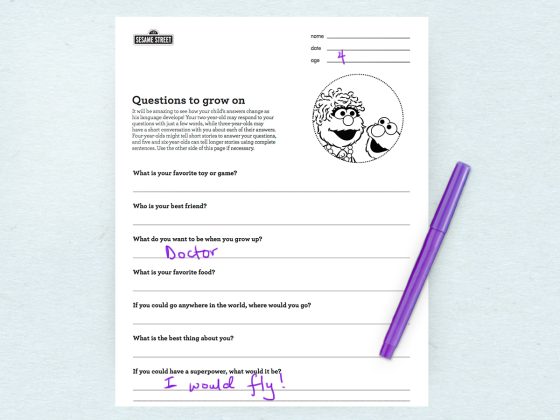
Questions to Grow On
A special way to remember your child's milestones can be a treasure for both of you.
From day one, everything you do builds important connections in your child’s brain. The brain will grow as you encourage curiosity by being nurturing and responsive. Slowing down, noticing, and being present with your child offers a special window into their growth and development.
At any age or stage, you can create a treasure chest from a container such as an empty shoebox or a cardboard box in which you can save special mementos. Decorate the treasure chest any way you like (older children can help). In years to come, the treasure box will help you both reflect on memories and milestones that show how much your child has grown, and help you remember the moment of that first word, that first tooth, that first bite of banana.
Interview your child! Print this interview page as a guide, and record your child’s answers. Add it to your treasure chest once your child is able to start answering questions, and repeat each year (or more often)!
You might also write a “Things I Love About You” note or list to your child every year on his birthday (or anytime!) and create a special moment by sharing it with him when you open the treasure chest. Showing unconditional love, being responsive to his needs, and talking about emotions can encourage healthy emotional development as well as build confidence and self-esteem.
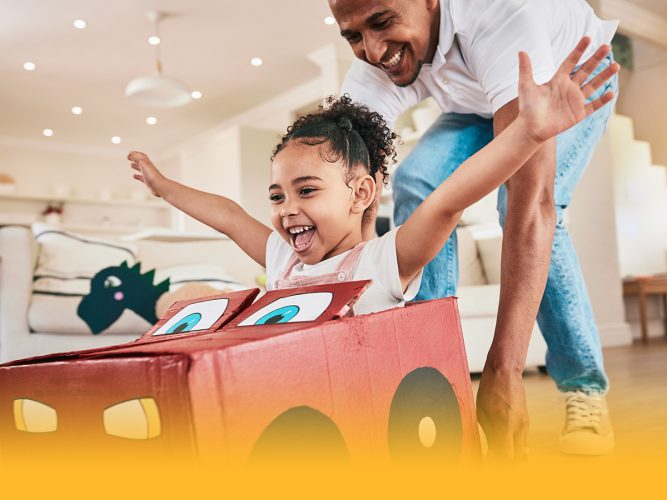
The Power of Following Children’s Lead
Joining children in their play offers so many opportunities to encourage, communicate, bond, spark and share joy, teach, show warmth and kindness, and help them thrive.
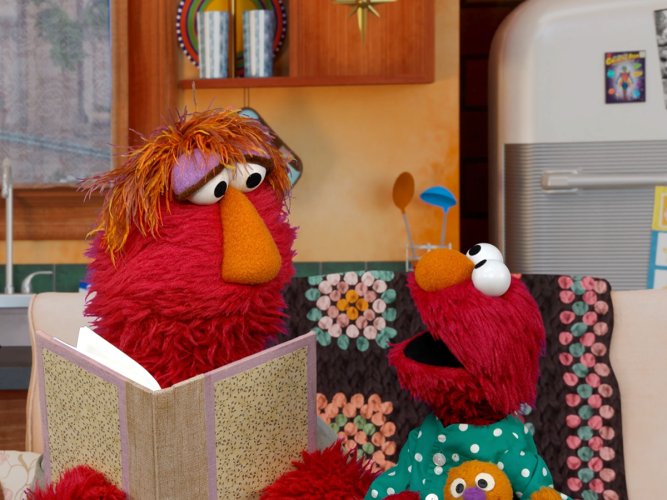
Go To Sleep, Elmo!
Handling a middle-of-the-night monster moment.
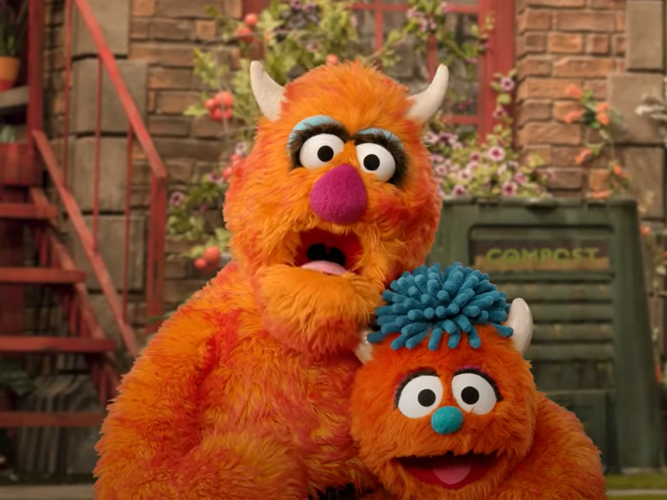
Monster Meltdown
Meltdowns happen… but they are somewhat predictable! As you try to handle them, curiosity and patience go a long way.
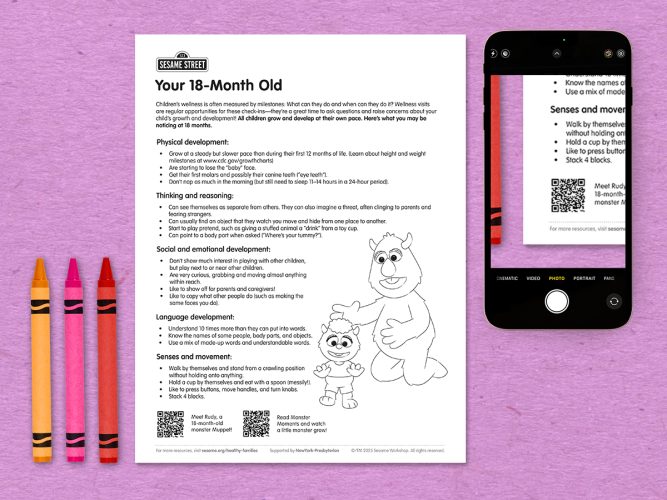
Milestones: Your 18-Month Old
All children grow and develop at their own pace; use this chart to guide your expectations and observations so you can talk to your child’s pediatrician about questions or concerns.
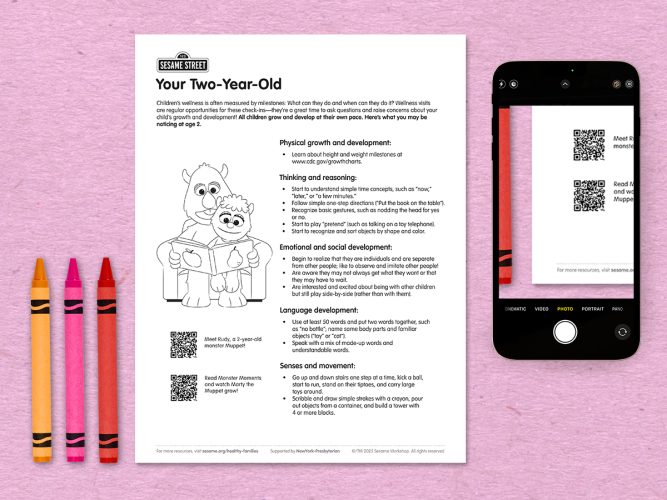
Milestones: Your Two-Year-Old
All children grow and develop at their own pace; use this chart to guide your expectations and observations so you can talk to your child’s pediatrician about questions or concerns.
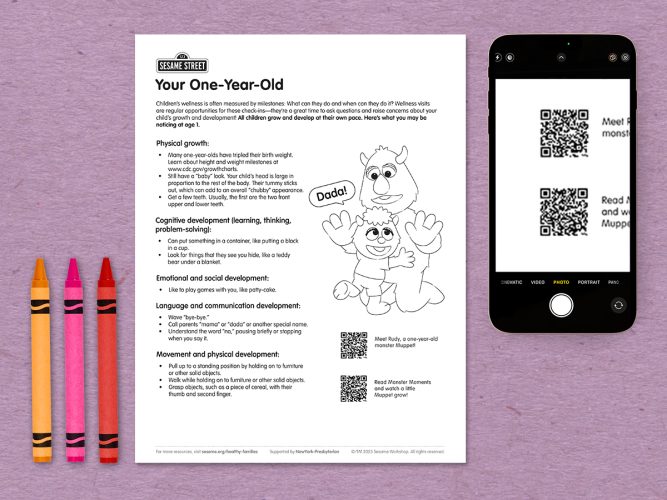
Milestones: Your One-Year-Old
All children grow and develop at their own pace; use this chart to guide your expectations and observations so you can talk to your child’s pediatrician about questions or concerns.
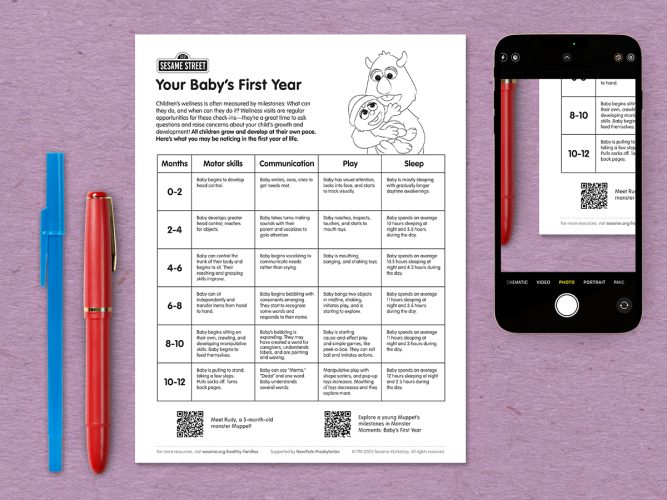
Milestones: Your Baby’s First Year
All children grow and develop at their own pace; use this chart to guide your expectations and observations so you can talk to your child’s pediatrician about questions or concerns.
